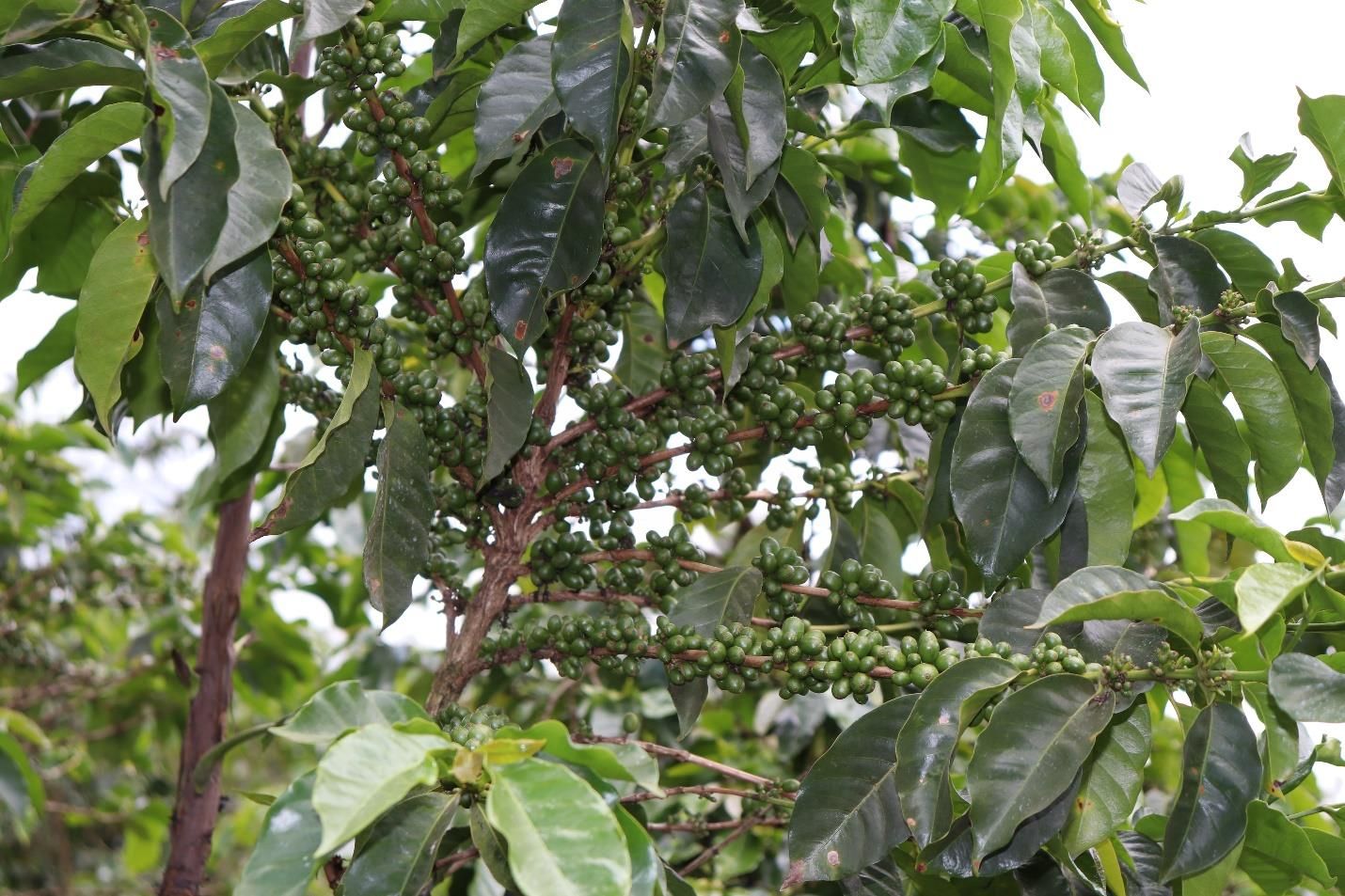Kianjuki AA
Tasting notes: From the rich volcanic soils of Embu, Kenya, Kianjuki AA bursts with tropical sweetness. This coffee features juicy notes of papaya and sugarcane molasses, balanced by blackcurrant and stone fruits. Complex and full-bodied with crisp acidity and a long, smooth finish. A vibrant and refreshing Kenyan cup.
Roast level: medium roast.
Kianjuki AA is suitable for all medium to coarse grind brewing methods, like Filter Coffee, French Press, Chemex, etc. It is also suitable for Aeropress.
528฿ – 3,320฿
- Country: Kenya
- Region: Embu County
- Farm: Kururumwe FCS/ Kianjuki Factory
- Owner: 1,450 smallholders farmers
- Processing: Fully Washed
- Altitude: 1,610 metres above sea level
- Varietal: Ruiru 11, SL 28, SL 34
With nearly 700,000 coffee producers, roughly 70% of which are smallholder producers, Kenya shines as a unique coffee-producing country in East Africa. In Embu County, along the slopes of Mt. Kenya, the Kianjuki Factory was built in 1980 to serve as a processing facility for the members of the Kururumwe Farmers Cooperative Society (FCS).
The area is characterized by nutrient-rich red soils and climates ideal for coffee production. Farmers are typically growing bananas, maize, beans, and macadamia alongside their coffee. The FCS has 1,450 members who bring their coffee to the Kianjuki Factory or the nearby Makengi Factory.
Once the cherries are delivered to the Factory, they are sorted to remove any that are over or underripe. Next, the cherries are de-pulped to remove the external fruit. Fermentation follows, whereby the coffee beans are placed in tanks to ferment overnight, breaking down the sugars in the sticky mucilage. The following day, the coffee is rushed through channels of water to clean and remove any remaining mucilage or debris. Once cleaned, the coffee is then spread evenly on raised beds to dry in the open sun for 7 – 15 days, or until the ideal moisture content is reached.
Water used during processing is carefully placed in one of the nine nearby soaking pits, to safely return the water to the earth without harming local water sources. Nappier grass is planted to assist with this purification. The Factory also offers farm inputs on credit and cash advances to farmers as incentives to support coffee production.

